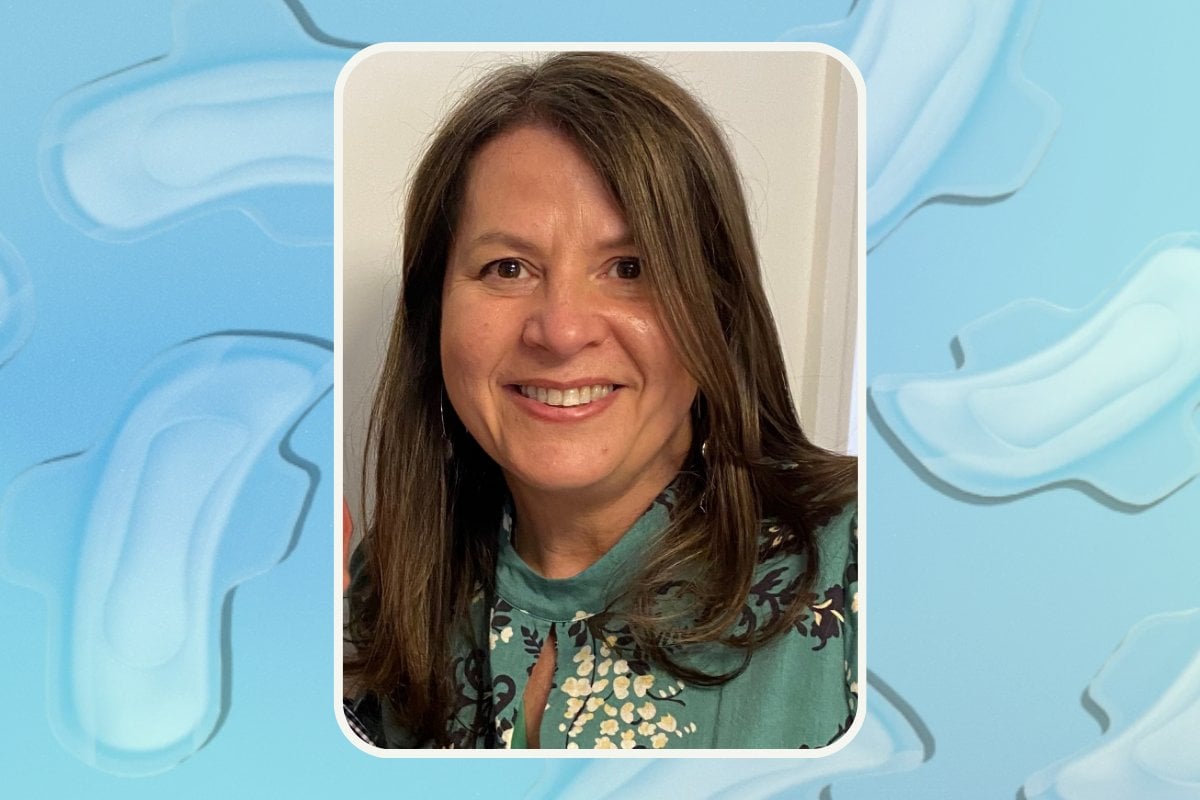

It came early. It was heavy. Most of us have been there, at least once.
It leaked through the pad. It gushed through the tampon. And if you’re in the privacy of home, crisis averted.
But at school? In the workplace? At a social gathering?
The feeling of dread.
49-year-old Melbourne woman Yvonne has suffered from heavy menstrual bleeding since she first got her period at the age of 13.
Affecting 25 per cent of Australian women of reproductive age, the condition is defined as excessive menstrual blood loss, interfering with a woman’s physical, social or emotional quality of life.
"Once in art class, I got up from my seat, and I had flooded everywhere. I had to pretend that I had stabbed myself with a ruler!" Yvonne tells Mamamia.
A jumper tied around the waist would sometimes be a temporary fix, but even then she would still bleed through; it was incessant.
Some mornings Yvonne would awake in a pool of blood. Swimming carnivals were received with dread — "and playing cricket in all white was fantastic," she adds wryly.
The condition followed her into the workplace too.
As the manager of a customer service team, Yvonne recounts an incident where she found herself perched on the edge of a coworker’s desk, mid-explanation, to then be struck with the realisation:
Oh God. I can’t stand up!
"I ended up getting them to print something, only to have them retrieve it from the printer, just so I could create some distance. You get creative with distractions."
